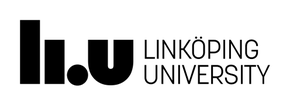Computer Science

Computer Science is one of the most dynamic and expansive fields of science. In addition to having a deep understanding of the theoretical and technical foundations, professionals in this field must be able to apply the technology to challenging problems, and integrate it with other technologies. Applicants should have an adequate background in computer science and good programming skills.
Several elective courses
The first three semesters include not only core courses in theoretical computer science and programming, but also elective courses such as artificial intelligence, databases and data mining, the design and programming of computer games, information security, advanced computer graphics, and human-computer interaction. Most courses feature lectures in theory and techniques, which are applied in practical laboratory work. Some courses also feature projects and seminars.
In the final semester you write a thesis, either on your own or with a fellow student. The work may be carried out in collaboration with a company, or as a research project with the university.
Five specialisations
The programme offers five specialisations:
- Visualisation and Computer Graphics
- Artificial Intelligence and Data Mining
- Computer Networks, Distributed Systems and Security
- Embedded Systems
- Programming and Software Methods
It is not mandatory to follow a specialisation – you may also tailor your own combination of courses, with full freedom of choice. All specialisations are offered in Linköping, except Visualisation and Computer Graphics which is given at Campus Norrköping.
Į magistro studijų programas gali stoti visi, baigę universitetą arba besimokantys paskutiniame kurse. Studijos kurias baigei ar tebesimokai turi būti panašios krypties kaip ir tos, į kurias nori stoti, kadangi priėmimas yra paremtas ECTS kreditų suderinamumu.
ECTS kreditų išrašas - jei dar nesi baigęs aukštosios mokyklos, būtina prisegti ECTS kreditų išrašą, kuriame būtų matyti, kokius dalykus Tu mokeisi bei kokius pažymius ir kiek kreditų už juos gavai. Kai siunti anketą paskutiniame kurse, diplomą reikia prisegti vėliau, kai tik jį gausi.
Jei dar nesi baigęs aukštosios mokyklos, prie anketos būtinai turi prisegti šį užpildytą dokumentą, patvirtinantį, kad studijuoji ir šiais metais baigsi savo studijas. Dokumentas turi būti patvirtinas universiteto administracijos.
Bakalauro diplomas – jei jau esi baigęs aukštąją mokyklą, išrašo nereikia, užtenka prie anketos prisegti savo Bakalauro diplomą.
Svarbu, jog anglų kalbos testo sertifikatą ir visus kitus reikalingus dokumentus atsiųstum iki balandžio 10d. Anglų kalbos žinias gali patvirtinti vienu iš šių būdų:
IELTS – 6.5 (ne mažiau nei 5.5 iš kiekvienos dalies).
TOEFL - 90. Ne mažiau 20 (iš 30) taškų turi būti surinkta writing dalyje. TOEFL testo rezultatai privalo būti nusiųsti tiesiogiai iš centro, kuriame laikei testą.
Išimtis! Asmenims, turintiems brandos atestatą, kuriame nurodytas anglų kalbos B2 lygis anglų kalbos testo laikyti nereikia
- A bachelor's degree with a minimum of 60 ECTS credits in computer-related subjects (e.g. programming, data structures, databases, software engineering, computer hardware, computer networks).
- At least 24 ECTS credits in mathematics/applied mathematics and/or application of mathematics relevant for the programme including courses in discrete mathematics, linear algebra and calculus.
Note. You must provide your Bachelor's degree syllabus to prove you have required credits in particular subjects.

